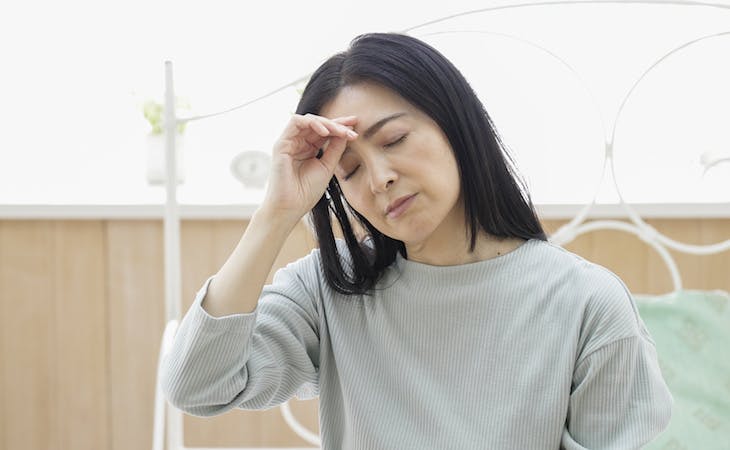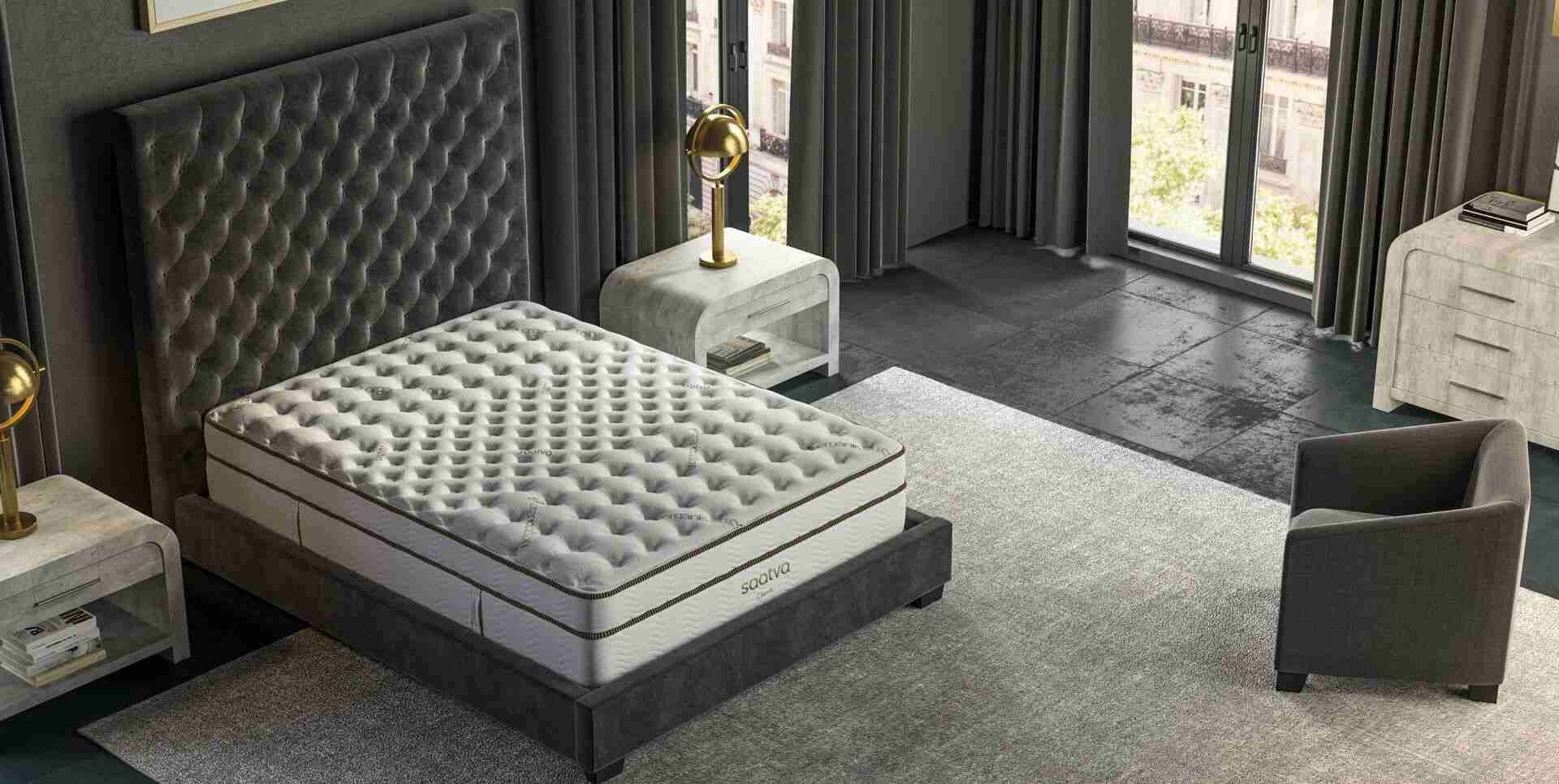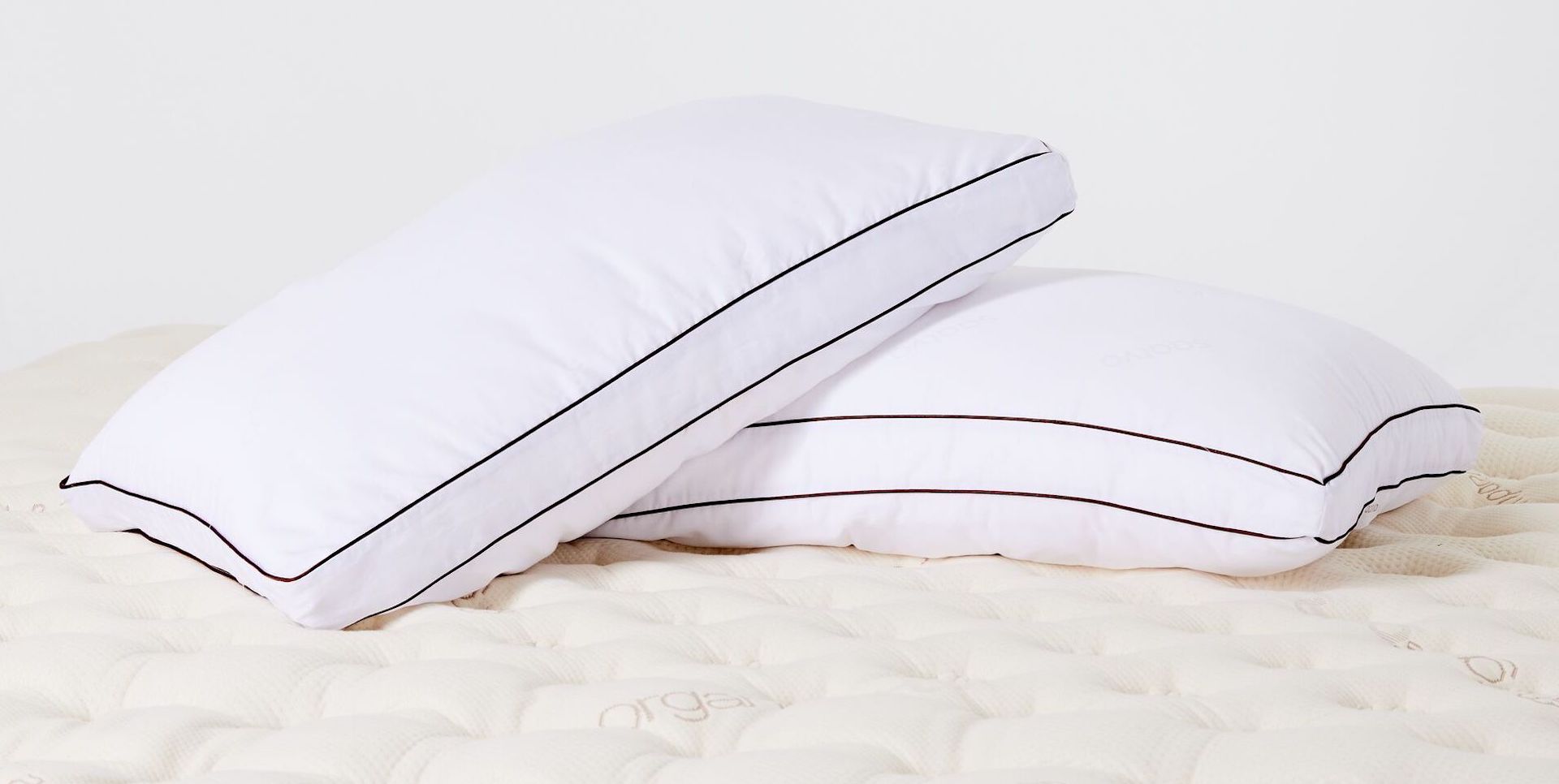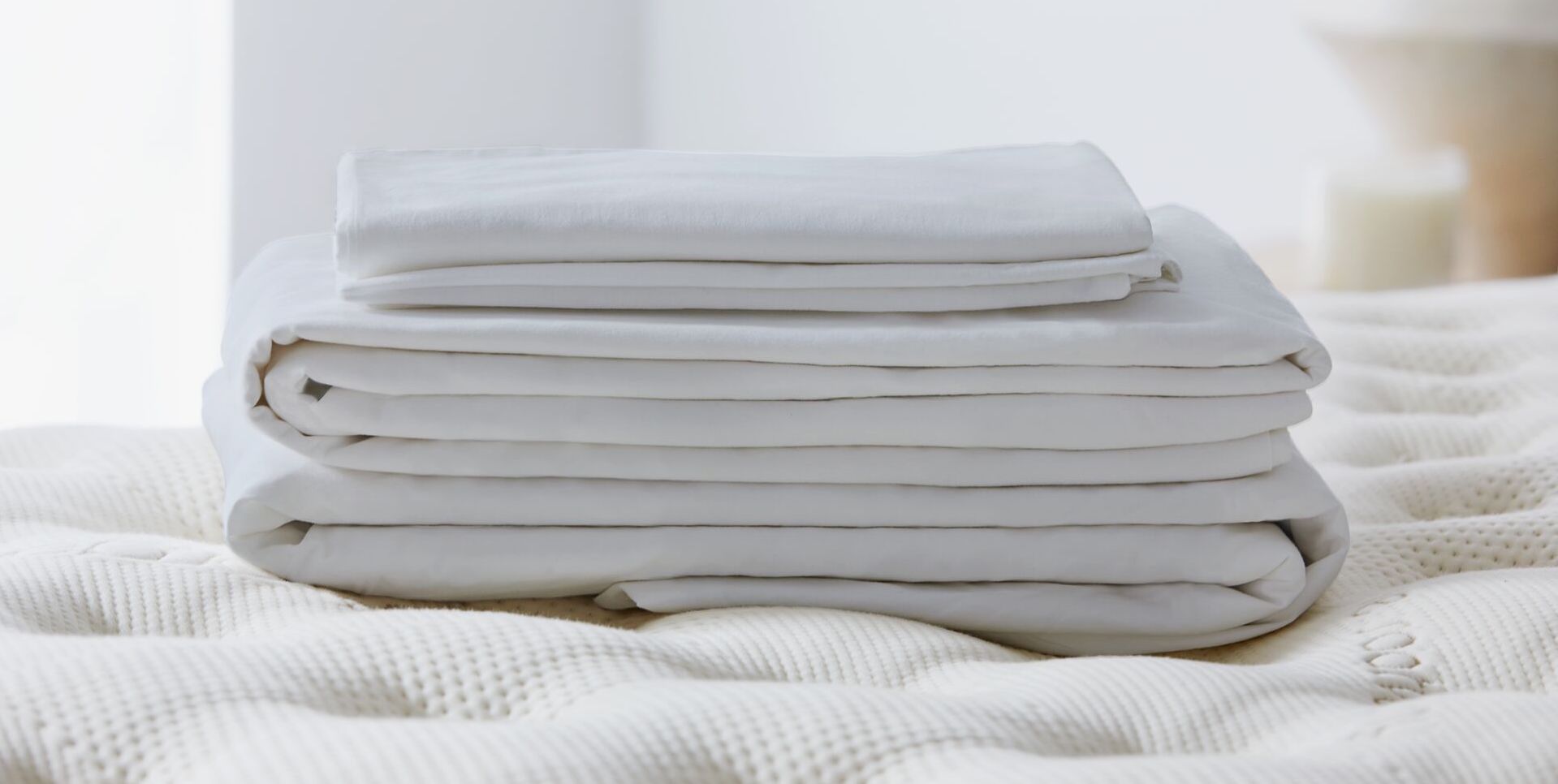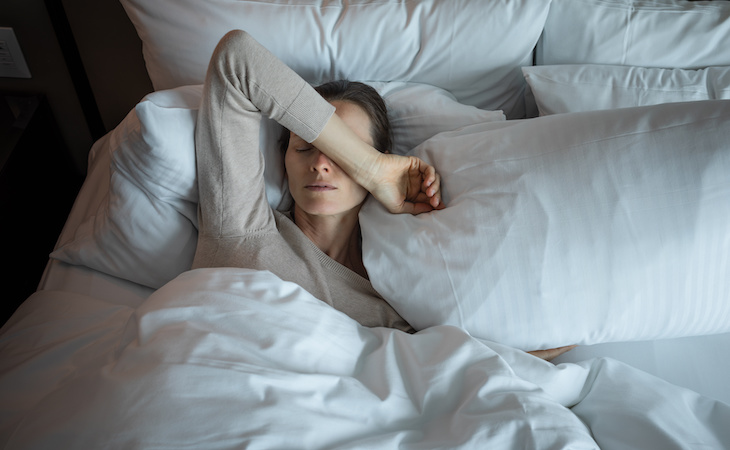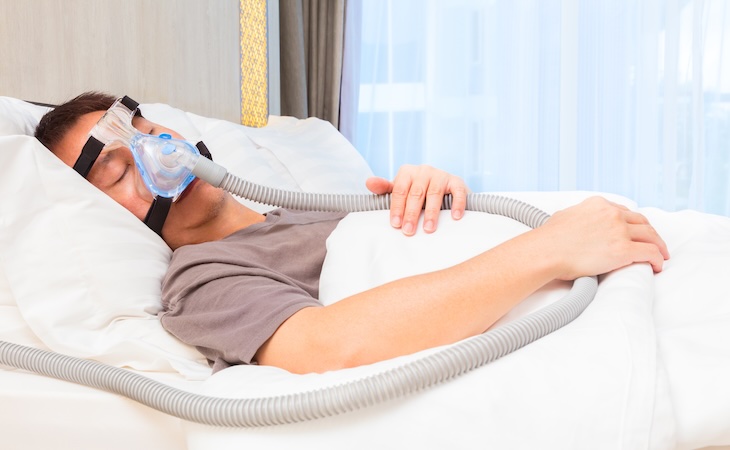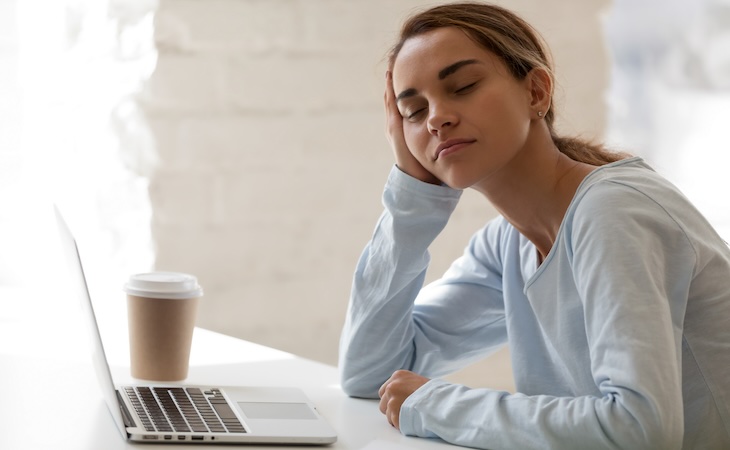Imagine you’re in a sauna—warm, relaxing, steamy. Someone pours a fresh ladle of water over the stones and the temperature inches up…and up and up. Sweat pours down your face and stings your eyes. It’s time to get outta there! So you tiptoe out and cool off with a dip in the freezing plunge pool. Whew.
All that switching from hot to cold is invigorating if you’re at a day spa. But it’s absolutely exhausting if it’s happening at night, the way it does for some women going through menopause. First, they wake up drenched from a hot flash and night sweats, says Adelaide Nardone, MD, an ob-gyn in New York City. “Then they throw the sheets off, and the sweat cools their bodies,” she says. “If they do fall back to sleep, they get cold and pull on the blankets again and the sweats can recur. Think about that cycle—if that happens day after day, week after week, you’re sleep deprived. It affects your mood, your energy, your judgment, your quick reflexes, your temper. Sleep deprivation is a form of torture!”
Menopause and sleep: What’s the connection?
Many women, even those who have never struggled with insomnia, run into sleep troubles in their late forties and early fifties thanks in part to shifting hormones, says Nardone. During the first few years of the menopausal transition, levels of estrogen, progesterone, and testosterone start to fluctuate wildly, triggering irregular periods and symptoms like headaches, palpitations, hot flashes, and night sweats.
Night sweats are tough to sleep through and are likely one of the big reasons that 56% of peri-menopausal women sleep fewer than seven hours a night, according to the Centers for Disease Control and Prevention. Although every woman is different, some find that their worst sleep difficulties calm down once they’re officially “post-menopausal” (generally around age 50, according to the North American Menopause Society.)
While symptoms like hot flashes and night sweats may recede after menopause, you still may not sleep as well as you used to in your twenties and thirties. That’s because your body no longer produces progesterone, a sex hormone that has a sedative effect. Estrogen—a hormone also known to have sleep-promoting qualities—is also in shorter supply.
“Estrogen helps the body use serotonin and other neurochemicals that assist sleep,” writes Michael Breus, PhD, a Los Angeles sleep disorder specialist and author of Good Night: The Sleep Doctor’s 4-Week Program to Better Sleep and Better Health. “Estrogen contributes to higher-quality sleep, with fewer awakenings throughout the night, and less time needed to fall asleep. When I talk to my patients about estrogen, I describe it as a great protector of women’s sleep and overall health.”
How to sleep better during menopause
There’s no magic prescription for getting through this bumpy menopausal sleep transition, but understanding the underlying processes and implementing some simple lifestyle tweaks can empower you to get the best rest possible. Here’s where to start.
Check your thermostat
One of the simplest steps you can take to ensure sounder sleep is to keep your bedroom cool—between 60 to 67 degrees Fahrenheit is ideal, according to the National Sleep Foundation. Your body temperature drops as you get drowsy which helps induce sleep; starting out with a cooler room can help speed that process along. Room temp is important at any age, but it may be especially key during menopause. (Here are more tips for sleeping cool.)
Address underlying anxiety
Fluctuating estrogen levels and other chemical changes during menopause can increase feelings of anxiety and even cause heart palpitations. Not only does anxiety disrupt sleep all on its own, it may also directly contribute to night sweats. One 2017 study by researchers at the University of Pennsylvania found that menopausal women who reported physical symptoms of anxiety such as muscle aches and racing heartbeat were more than three times as likely to have severe hot flashes as less anxious women.
Tweak your diet
Spicy foods and alcohol are known triggers for sweating and hot flashes, and evidence is building that caffeine does the same. (They also cause sleep-inhibiting acid reflux.) One 2015 Mayo Clinic study found that women who regularly drank caffeinated coffee and tea had more frequent and bothersome hot flashes and night sweats than those who didn’t. Although the research isn’t definitive, some women say boosting the natural plant estrogens in their diet makes a difference in menopause symptoms like sleep-disrupting moodiness and night sweats. Rich sources of these substances include lentils, soybeans, and chickpeas. That said, you should always discuss potential side effects or health issues with your doctor before changing your diet or adding any supplements that contain plant-based estrogens to your routine. Some evidence suggests they may not be good for women with a high risk of certain breast cancers.
Upgrade your bedding
The last thing you need when you’re fighting insomnia or night sweats is a too-warm bed. Go for breathable sheets and pillowcases made from natural materials such as bamboo or cotton to increase airflow throughout the night. As for mattresses: the coolest types are innerspring or hybrid mattresses that layer foam, fabric padding, and coils to promote breathability, says Derek Lakin, a researcher and product expert at consumer-review site HighYa. Foam mattresses will generally sleep warmer—although newer generations of memory foam, such as those made with plant-based ingredients, retain less heat than older ones.
Another option: adding a temperature-control pad to your existing mattress. Sleep physician Jeffrey Durmer, MD, PhD, swears by the ChiliPAD, which uses water to cool down or heat up your side of the bed: “My wife and I have been using the pads for two years now,” he previously told us. “You can turn the temperature down into the 50s. For post-menopausal women, it’s a real plus. My wife runs hot, and her side of the bed is ridiculously cold!” (Check out more of Durmer’s tips for great sleep over 50.)
Talk to your doctor
For some women, menopause symptoms like sleep trouble and night sweats can be severe and long-lasting. But there are several over-the-counter supplements and prescription medications, including hormone replacement therapy, that may help, says Nieca Goldberg, MD, medical director of NYU Langone’s Joan H. Tisch Center for Women’s Health.
“The current theory behind hormone therapy is that it should be considered on an individual basis with your doctor based on symptoms,” she says. “I take care of patients who take menopause supplements such as black cohosh and Remifemin [a natural supplement] and the response is variable, but as long as it doesn’t interfere with anything else the patient is taking and it doesn’t cause harm, it’s worth a try.” One medication Goldberg doesn’t recommend for sleep-deprived menopausal women? Prescription sleep drugs or sedatives because some can be habit-forming. (Find out more about the safety of natural sleep supplements such as melatonin.)

